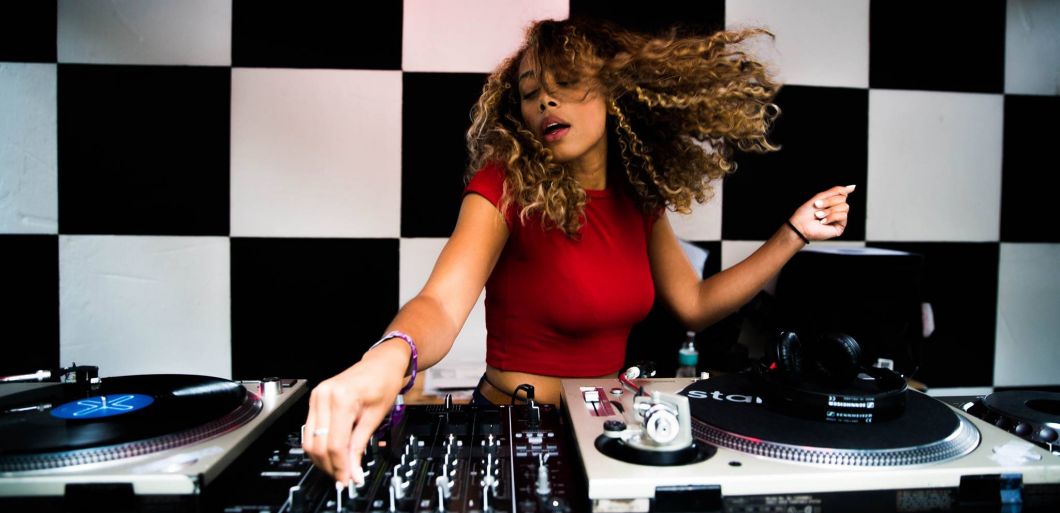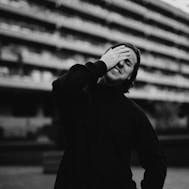
DJ Boring Interview: It's difficult to explain
DJ Boring spoke to John Thorp about his interest in pop culture, not wanting to be pigeonholed and being comfortable with being an outsider.
Skiddle Staff
Last updated: 23rd Nov 2017
DJ Boring is not a name that conjures up the restless spirit of house music, throbbing dancefloors and soaring YouTube views, but this is exactly what the alias of Australian producer Tristan Hallis has achieved in just over a year. Based in London, he’s been a central figure of what became known as ‘lo-fi house’, a fuzzy, crunchy and referential sound dominated by himself, alongside artists such as Ross from Friends and DJ Seinfeld.
Of course, having caused a little bit of grief to self-serious house heads, that loose movement has already evolved in different directions, and Hallis himself has evolved beyond his afterparty favourite, ‘Winona’ (a melancholy anthem sampling the reinvigorated Stranger Things star), into an ambitious party DJ, easily melding both contemporary and classic slices of house, techno and disco.
Ahead of his debut appearance in Liverpool this weekend at Boogaloo x Down To Funk, Hallis chatted with John Thorp about the ups and downs of being in any ‘scene’, outsider figures in pop culture and the power of percussion.
I understand you’ve been producing music for quite a while prior to moving to London. Was it the scene there that transformed you into DJ Boring?
When I first moved here, I was very, very intrigued by the whole London scene, which was a lot bigger than the Melbourne scene. I just wanted to be around it, and then this whole DJ Boring thing kind of put me into it.
I’ve read that you originally made indie and electronica inspired by artists such as Dan Deacon and Animal Collective. Which made sense, as I think your work still has that whole ‘DIY’ aspect to it, albeit in a different context. Was there a particular moment that you switched to a more directly house sound?
I was always into that kind of music, but I think I watched a documentary on dance scenes, and it wasn’t quite the same as when I was making music for that Animal Collective kind of style. It was inspiring that people were dancing, and I wanted to venture into a place where people just danced their heart out. And that seemed to work well.
Would you say that your approach to music, your methods and ideals, still have much in common with the initial philosophy of DIY or indie music?
Absolutely. I think with that whole scene was that the music was very melodic, and that’s what people want to hear when they go out and see a show, whereas, with dance music, the biggest aspect of it is the kick. And along with rhythm or percussion, that’s what people need when they’re out in clubs. But when people go to shows, there are people just doing acoustic stuff. But I’m really a big percussion-head.
I had always assumed your DJ name was a bit of a joke acknowledging the idea that ‘everyone is a DJ’ these days, whereas in fact it’s as you’d learned your name simply meant ‘Boring’ in Swedish. Were you worried you wouldn’t be taken seriously?
I’d always just made music for myself as I enjoy it. I was trying to be into the music scene, not to be the next big thing. And then, this kind of did happen. Which I never expected, because I didn’t think about it.
I think yourself, Ross from Friends and DJ Seinfeld have made music, and an album in the latter case, that has transcended the lo-fi house scene. Did you feel you have had to work hard and develop your sound to not simply be associated with that?
Well, I never really wanted to be a part of that scene. For me, I was making songs about how I felt at the time, and that’s how they came into perspective, with a bit of crunch. But a lot of the time, I don’t things those songs were especially lo-fi, or crunchy or hazy. I just kind of got pigeonholed in something I never wanted to be part of, to be honest.
Your work interacts with pop-culture figures such as George Michael and of course, Winona Ryder, in a way that reminds me of a lot of what we might call internet culture, in terms of samples. Would you say you’re fairly immersed in online culture in that sense?
I wouldn’t say that I’m inspired by the internet aspect, but I’m inspired by pop culture. Either musicians, or actors or actresses. I would always tribute stuff to people like John Waters, Winona, George Michael.
John Waters is an interesting figure. What’s your favourite film of his?
Pink Flamingoes! I think that’s most people’s favourite, to be honest. I just really love listening to him talk. He did this book, ‘Hitchhiking Across America’. Just hitchhiking across America, at his age, talking to people about their experiences, and it was just incredible.
Winona proved to be such a hit. Do you think it resonated with people as it’s such a warm record, with a very sympathetic sample?
It definitely works with me. The actual sample is something to do with how easy it is to be judged and reviewed as a teenager, and that when she wanted to be an actress, people would put her down as she wasn’t pretty enough. And I used to feel the exact same way with my music. It’s supposed to be related to me, and how I feel.
You also made a tribute to George Michael that you released shortly after his death. He was another sort-of ‘outsider’ figure in pop music. I get the impression that those people - George, Winona and John Waters - they resonate with you? Do you still have that feeling within London and the dance music scene that you’re now a part of? Is it easy to stay true to yourself?
Absolutely, I do. I’ve always felt very comfortable being an outsider, so it was nice coming into a music scene that connected with myself and I was happy about that.
Am I right in saying that out of the Australian cities, Melbourne would be the most outsider place to go and create art?
Absolutely. There are people who put on parties once a month, and they would be their own parties with people within their own scene, which was cool and very outsider.
Taking it back to Winona once more, have you got round to the second season of Stranger Things yet, and what did you think?
I loved the second season of Stranger Things! I’d hope they do one or two more. I think any more than that, and you’re going to ruin it.
Find Boogaloo x Down To Funk presents DJ Boring tickets below.
Tickets are no longer available for this event
Read more news
Articles you may be interested in
related artists
Upcoming Events At Meraki , Liverpool
Here are the next 4 upcoming events At Meraki , Liverpool






























